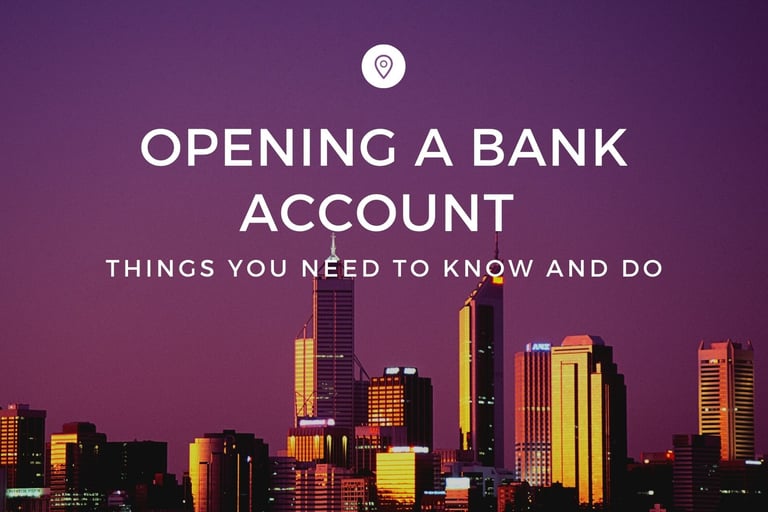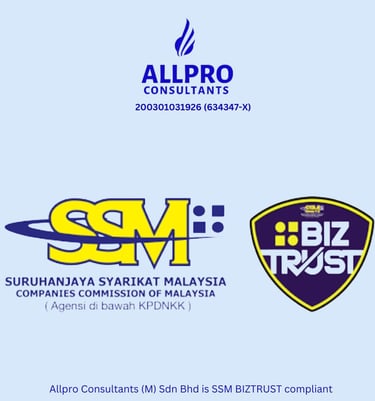How to open a Business Bank Account in Malaysia
What you need to know about opening a business bank account in Malaysia
DOING BUSINESS IN MALAYSIAPOST INCORPORATION
Usually, one of the first things that a company would do after it is incorporated, is to open a bank account. Opening a business bank account can be a lot easier for companies that have local Malaysian directors, as opposed to companies that are managed by foreign directors. Because Malaysia has strict laws against money laundering and terrorism financing, it may be more challenging for foreigners from certain countries to open a bank account in Malaysia.
It is easier for Malaysian, as the banks can easily make sure of the creditworthiness of a local director. Most, if not all banks, will run the directors' NRIC through the credit rating agencies, such as CCRIS and or CTOS to check the status of their financial standing. A CCRIS report will reveal late payments and the status of any outstanding loans. The CTOS report can tell you about the status of a case, and legal and/or bankruptcy proceedings against any individual. It can also show your involvement in different industries and businesses.
For foreign customers, banks will usually do customer due diligence by checking worldwide databases to ensure a clean record. The policy of many banks in Malaysia may be to disallow individuals from certain countries from opening and operating corporate bank accounts. Nationals from countries that are restricted include those from Israel, Iran, Iraq, Syria, Serbia, and North Korea.
If you intend to open a company bank account after incorporation, here are some requirements that you should know. You would need
to complete the application form from the Bank
provide copies of all the directors' and authorised signatories' identification documents
to obtain from your Company Secretary, certified copies of the board resolution to open a bank account, together with the SSM forms
No one bank is ideal for every individual, and you should consider the following matters to ensure that the financial institution you pick meets your needs, such as
availability of online banking
network of branches
bank charges that are imposed on transactions
the type of facilities and services offered
minimum account balance requirements
If you are seeking to explore this topic in more depth, kindly reach out to us so that we can provide you with a free consultation.






